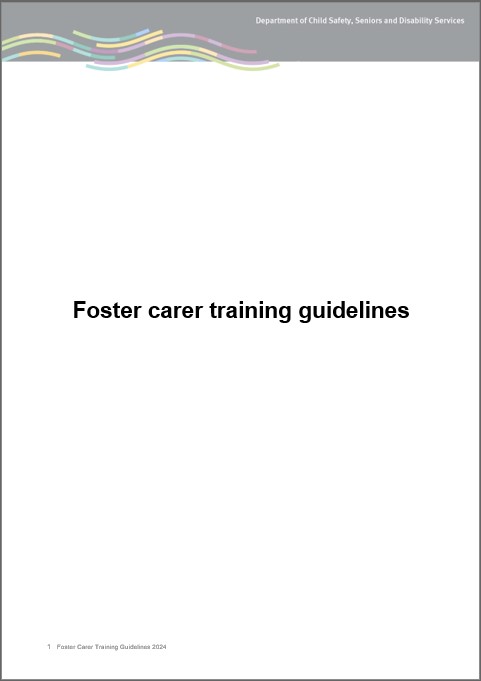Foster carer training guidelines
The purpose of the Foster Carer Training Guidelines Foster Carer Training Guidelines is to support a consistent approach to training, including mandatory training, for foster carers. It outlines the requirements for foster and kinship care agencies in delivering foster carer training to ensure potential and current foster carers receive a consistent standard of training.
Foster carer training is important to equip potential and current foster carers with the necessary skills and knowledge required to undertake their critical caring role. The training will enable carers to understand their role and responsibilities as a carer, including allowing them to make an informed choice to become carers. It will also assist carers to meet the legislative statement of standards and policy and procedural requirements when caring for children and young people placed in their care.
People considering becoming, or currently providing care as approved kinship carers can also access the training available to foster carers. However, foster and kinship care agencies will work with kinship carers to identify their specific learning, development and support needs and adapt the training accordingly in recognition of the unique challenges faced by kinship carers.
In addition to carer training the Family Caring for Family information guide Family Caring for Family information guide information guide is also available to support kinship carers.
Learning outcomes
- Demonstrate an awareness of why children and young people require out-of-home placements, how children come into care and the impact this process has on children and young people.
- Demonstrate an understanding of the past issues affecting a child or young person in an out-of-home placement.
- Develop the knowledge and skills to meet the physical, emotional and social needs of children and young people subject to statutory intervention and develop an understanding of the importance of participation by children and young people and their families in decision making.
- Demonstrate an understanding of the partnerships that exist between children, their families, foster carers and workers, (both in the government and non-government sectors), and their roles and responsibilities of working together as a team.

 This work is licensed under a Creative Commons Attribution 4.0 International (CC BY 4.0) licence
This work is licensed under a Creative Commons Attribution 4.0 International (CC BY 4.0) licence